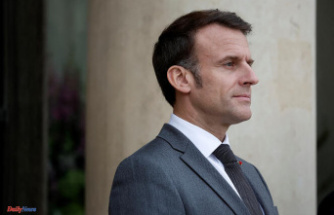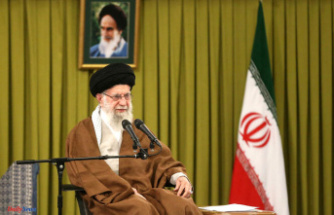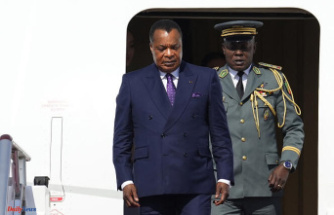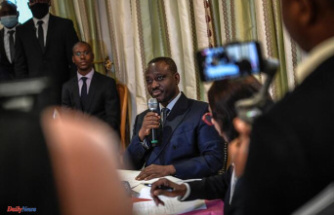Like a jigsaw puzzle, the electricity price is made up of many parts. One of them are the so-called grid fees. It is now becoming apparent how much that is likely to increase in Baden-Württemberg in the coming year. However, the last word has not necessarily been spoken.
Stuttgart (dpa / lsw) - It is clear that electricity and gas customers will have to dig deeper into their pockets in the coming year. It is gradually becoming apparent how much more expensive energy is becoming. The EnBW subsidiary Netze BW has now announced that it intends to increase the so-called grid fees, some of which will probably be in the double-digit percentage range. However, these are preliminary figures, said Managing Director Christoph Müller of the German Press Agency. These could still be adjusted by the end of the year. It would be the first time that happens - but not unlikely this year.
Network charges are part of the electricity price. Energy providers pay them to network operators for using the electricity and gas infrastructure - and usually pass them on to consumers. The Federal Network Agency regulates and controls the grid fees, which differ, for example, depending on the quantity purchased or whether it is high or low voltage.
There are other regulated components of the electricity price, such as fees for metering and meter operation. Overall, they have so far made up about a quarter of the price for household customers. In view of increases in other factors as well, the share of network charges in the total price could soon fall, in Müller's estimation.
In detail, Netze BW is planning to raise the basic price for a household connection from 40 to 80 euros for the coming year, while the so-called working price is to drop from 7.55 cents per kilowatt hour to 7.21 cents. According to a sample calculation, the costs for using a typical household connection with an annual consumption of 3500 kilowatt hours should increase by around 9 percent overall. In the case of the gas network, it is even almost 30 percent.
The main reason given by Müller for the electricity was higher costs for compensating for the loss during transport through the grid. This is technically unavoidable. In addition, the transmission system operator Transnet BW is raising its network charges. The increase is then included in Netze BW, which in turn is responsible for the distribution network.
One effect of the increase in gas is due to the crisis: Because less gas is supposed to flow through the network, the costs are spread over fewer kilowatt hours. Network charges will increase almost automatically.
Netze BW supplies around half of the municipalities in the southwest. They are mainly in rural areas, said Müller. In turn, municipal utilities obtain energy from Netze BW and pass it on to the end consumer - usually including the costs.
The four major transmission system operators in Germany, including Transnet BW, announced the planned amount of their user fees on Wednesday: they should average 3.12 cents per kilowatt hour in 2023 - uniform nationwide for the first time. The federal government wants to slow down a further increase in electricity prices with a subsidy of 13 billion euros. Business associations are calling for further steps. "The high energy prices are a significant burden on our economy and have the potential to lead to major socio-political upheavals," said the head of the industry association BDEW, Kerstin Andreae.
The network operators invest the income in the infrastructure. One cannot do without this simply because of the burdens resulting from the war in the Ukraine, said Managing Director Müller of Netze BW. "We have the energy transition, which is politically desired and which we as network operators have to implement." The war in particular has shown once again that moving away from fossil fuels, especially from Russia, is the order of the day. For that to work, the networks would have to be expanded. "What we want to achieve with the energy transition requires investment," emphasized the manager. "The buffers of the past have been used up."












